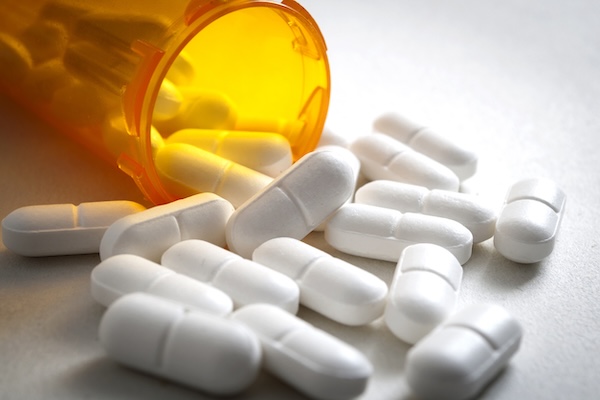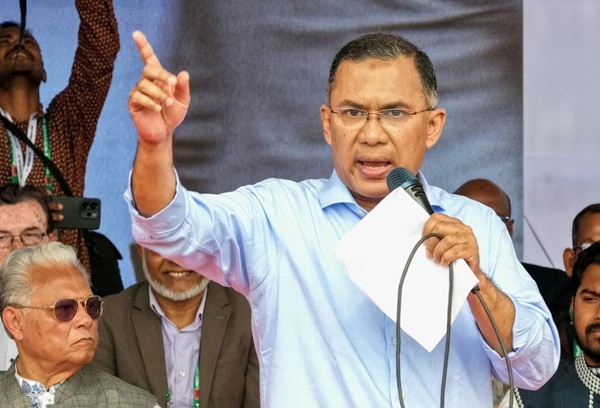.png)

Ajay Srivastava, founder of Global Trade Research Initiative, is an ex-Indian Trade Service officer with expertise in WTO and FTA negotiations.
September 26, 2025 at 7:56 AM IST
On the night of September 25, President Donald Trump announced via Truth Social that beginning October 1, the United States will impose a 100% tariff on all imported branded or patented pharmaceutical products, unless the manufacturer is actively building a drug-manufacturing facility in the US — defined as a plant that has broken ground or is under construction.
The announcement is part of Trump’s broader “America First Manufacturing” agenda aimed at forcing global pharmaceutical companies to shift production to US soil.
India is a major supplier of pharmaceuticals to the US, though its export profile is dominated by generic rather than branded products. According to DGCI&S data, India exported $9.8 billion worth of pharmaceuticals formulations to the US in 2024-25, accounting for 39.8% of its total pharma exports.
US import data for 2024 shows total pharmaceutical imports valued at $212.82 billion, with India contributing $12.73 billion or 5.98% of the total. By contrast, Ireland accounted for $50.35 billion (23.66%), Switzerland for $19.03 billion (8.94%), and Germany for $17.24 billion (8.10%). These European countries, which supply high-value branded and patented drugs, are expected to face the most immediate and severe impact from the new tariffs.
India’s Export
India’s exports to the US are heavily skewed toward finished formulations and medicaments, underscoring its strength as a global hub for low-cost generics. Shipments include tablets, capsules, and injectables used to treat hypertension, diabetes, infections, cardiovascular diseases, and neurological disorders. A large share also covers antibiotic-based formulations such as amoxicillin, azithromycin, and ciprofloxacin, along with vitamin and nutritional products like vitamin D3, B-complex, and multivitamin supplements.
Other key products include hormonal therapies, anti-ulcer and anti-diabetic medicines, pain management drugs, corticosteroid and alkaloid-based formulations, contraceptives, and specialty drugs such as anti-cancer, antiviral, and respiratory treatments. This focus on off-patent and generic formulations may shield much of India’s trade from the full impact of the new US tariff regime.
Grey Zone
The biggest uncertainty for India lies in the definition of “branded” under the new tariff policy. India exports both branded and unbranded generics to US. Branded generics are common — generic molecules sold under brand names. For instance, paracetamol may be exported as a bulk drug or in tablet form under a brand like Crocin.
Experts say US law treats even branded generics as patented drugs. If that is so, India pharma will have no impact. But if US authorities treat such branded generics as “branded imports,” such exports could be subject to the 100% tariff, even though they are off patented. This is a point of confusion. We must wait for US legal documents to say this with certainty.
India’s exports to the US are concentrated among a group of major pharmaceutical companies that together account for nearly 70% of shipments. These include: Zydus Lifesciences Limited, Dr. Reddy's Laboratories Limited, Lupin Limited, Aurobindo Pharma Limited, Hetero Labs Limited, Sun Pharmaceutical Industries Limited, Eugia Pharma Specialities Limited, Cipla Limited, Glenmark Pharmaceuticals Limited, APL Healthcare Limited, Gland Pharma Limited, MSN Laboratories Private Limited, Amneal Pharmaceuticals Private Limited, Mylan Laboratories Limited, Granules India Limited, Alkem Laboratories Limited, Annora Pharma Private Limited, AlembicPharmaceuticals Limited, Dr. Reddy’s Laboratories Limited Formulation Unit 7, and Unichem Laboratories Limited.
These firms primarily supply off-patent formulations that are critical to the US healthcare system, providing affordable alternatives and helping control medical costs.
While India’s generics may largely remain outside the tariff’s direct line of fire for now, Europe — particularly Ireland, Switzerland, and Germany — stands to be hit hardest. Their exports are dominated by high-value branded and patented drugs produced by global giants such as Roche, Novartis, Sanofi, Bayer, and GSK.
To mitigate the impact, several companies have already announced new US investments. According to The Wall Street Journal, more than a dozen pharmaceutical firms, including Eli Lilly, AstraZeneca, Roche Holding, and GSK, have pledged over $350 billion in the US by the end of the decade for manufacturing, R&D, and supply chain localisation.
India Outlook
For now, India’s low-cost generic model may offer a cushion against the shock of Trump’s tariff. Policymakers and exporters will be watching closely for clarifications from Washington in the coming days to assess the share if all of India’s $9.8 billion pharmaceutical trade with the US will stay unaffected or face disruption in branded product lines.



